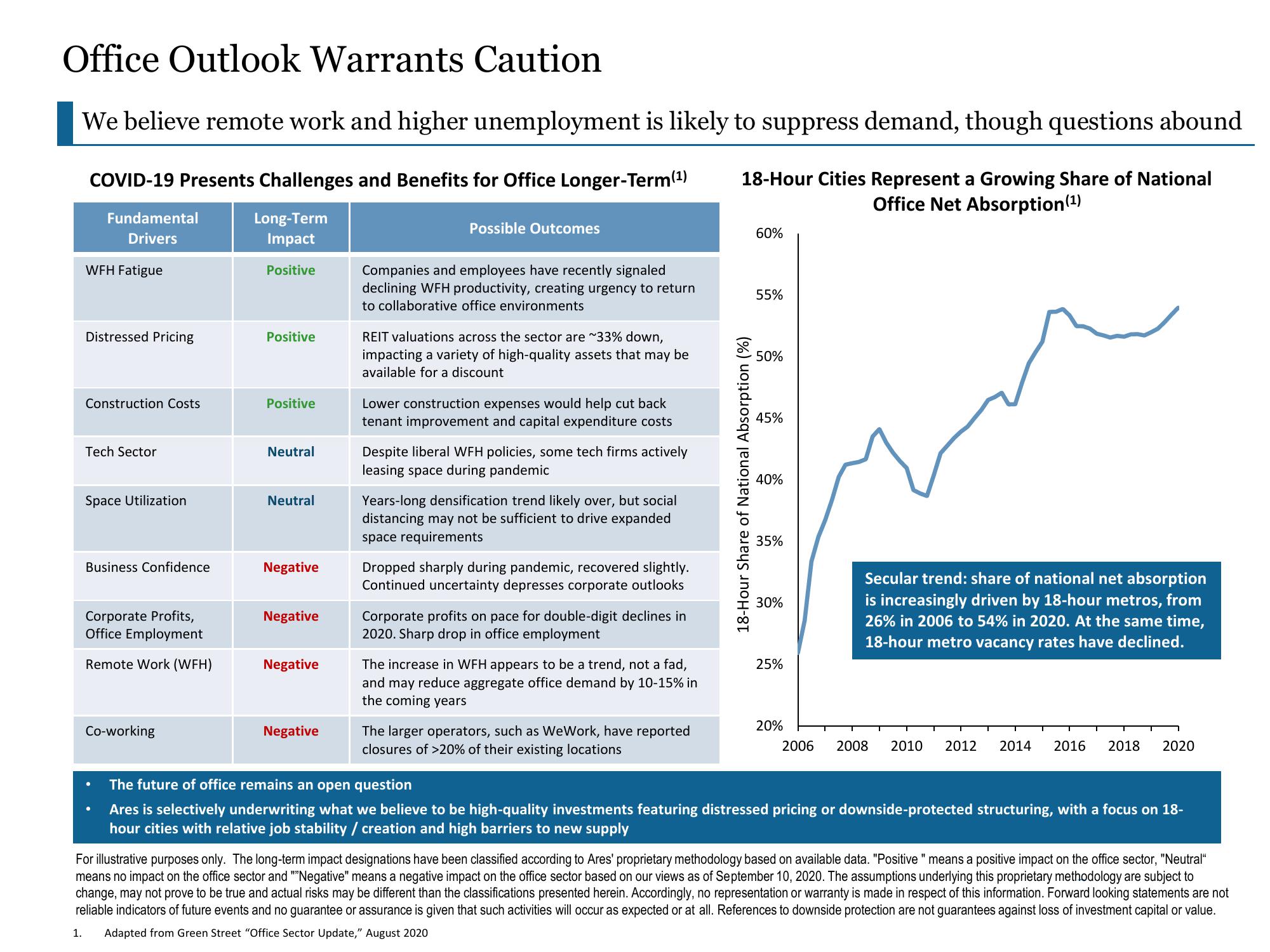Ares US Real Estate Opportunity Fund III
Office Outlook Warrants Caution
We believe remote work and higher unemployment is likely to suppress demand, though questions abound
COVID-19 Presents Challenges and Benefits for Office Longer-Term (¹)
18-Hour Cities Represent a Growing Share of National
Office Net Absorption (¹)
Long-Term
Impact
Positive
Fundamental
Drivers
WFH Fatigue
Distressed Pricing
Construction Costs
Tech Sector
Space Utilization
Business Confidence
Corporate Profits,
Office Employment
Remote Work (WFH)
Co-working
Positive
Positive
Neutral
Neutral
Negative
Negative
Negative
Negative
Possible Outcomes
Companies and employees have recently signaled
declining WFH productivity, creating urgency to return
to collaborative office environments
REIT valuations across the sector are ~33% down,
impacting a variety of high-quality assets that may be
available for a discount
Lower construction expenses would help cut back
tenant improvement and capital expenditure costs
Despite liberal WFH policies, some tech firms actively
leasing space during pandemic
Years-long densification trend likely over, but social
distancing may not be sufficient to drive expanded
space requirements
Dropped sharply during pandemic, recovered slightly.
Continued uncertainty depresses corporate outlooks
Corporate profits on pace for double-digit declines in
2020. Sharp drop in office employment
The increase in WFH appears to be a trend, not a fad,
and may reduce aggregate office demand by 10-15% in
the coming years
The larger operators, such as WeWork, have reported
closures of >20% of their existing locations
18-Hour Share of National Absorption (%)
60%
55%
50%
45%
40%
35%
30%
25%
20%
Secular trend: share of national net absorption
is increasingly driven by 18-hour metros, from
26% in 2006 to 54% in 2020. At the same time,
18-hour metro vacancy rates have declined.
2006 2008
2010 2012 2014 2016 2018 2020
The future of office remains an open question
Ares is selectively underwriting what we believe to be high-quality investments featuring distressed pricing or downside-protected structuring, with a focus on 18-
hour cities with relative job stability / creation and high barriers to new supply
For illustrative purposes only. The long-term impact designations have been classified according to Ares' proprietary methodology based on available data. "Positive " means a positive impact on the office sector, "Neutral"
means no impact on the office sector and ""Negative" means a negative impact on the office sector based on our views as of September 10, 2020. The assumptions underlying this proprietary methodology are subject to
change, may not prove to be true and actual risks may be different than the classifications presented herein. Accordingly, no representation or warranty is made in respect of this information. Forward looking statements are not
reliable indicators of future events and no guarantee or assurance is given that such activities will occur as expected or at all. References to downside protection are not guarantees against loss of investment capital or value.
1. Adapted from Green Street "Office Sector Update," August 2020View entire presentation